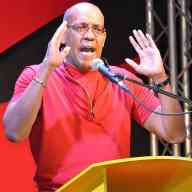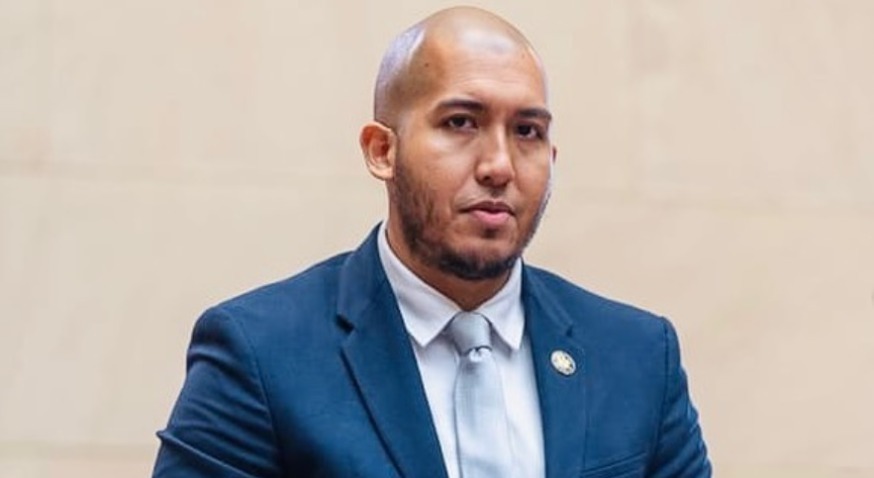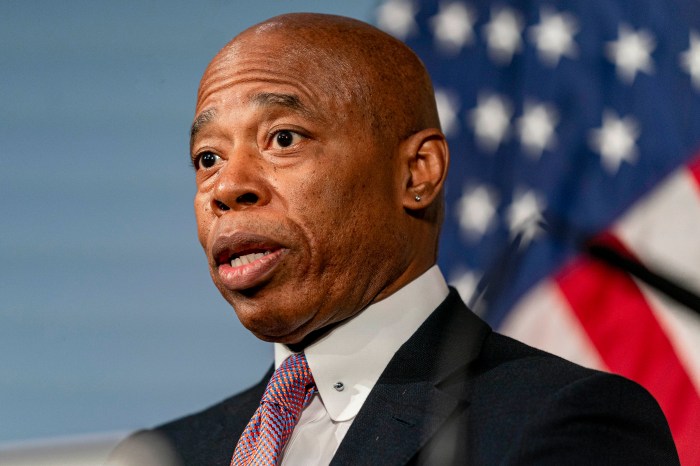Grenada
The government of Grenada has reported significant progress in its discussions with the International Monetary Fund (IMF), which concluded a mission to the island on Sept. 13.
The IMF has agreed to support Grenada in its “home grown program” of fiscal adjustment and structural reforms. At this stage, the discussions have not yet been completed.
It is expected that discussions will conclude in October when Prime Minister Dr. Keith Mitchell attends the annual IMF/World Bank meetings in Washington DC. After reaching agreement, the government will issue a formal letter of intent to the IMF and the island’s program will be considered by the IMF’s executive board.
In addition to government, the IMF team met with stakeholders, including the Grenada Industrial Development Corporation (GIDC), churches, private sector, trade unions and non-governmental organizations.
Guyana
The Caribbean Community (CARICOM) says it has entered into an agreement with Spain for a citizen security project that will focus on youth and gender issues, as well as youth entrepreneurship.
The Guyana-based CARICOM Secretariat said the CARICOM -Spain Citizen Security Project was signed recently during discussions between representatives of the CARICOM Secretariat and the Spanish Agency for International Cooperation for Development (AECID), to formalize approvals for new regional interventions for the 2013-2014 period.
It said the interventions under the project focus on support for the prevention and reduction of youth on youth violence in schools and communities in five Caricom countries and support for the implementation of youth entrepreneurship training through the Creative for Employment and Business Opportunity (CEBO) Programme in ten Caricom countries.
The Caricom Secretariat said that the discussions with the Spanish officials were a follow up to the second meeting of the Joint Technical Committee to the Joint Fund held in Trinidad on September 11.
Haiti
A prominent Haitian businessman and three Customs officials had been arrested on corruption charges, bringing to nearly 100, the number of people either charged or jailed on corruption charges over the past few months.
Prosecutor Francisco Rene said businessman Philippe Victor Chatelin was arrested recently in connection with a corruption and contraband case that involved several Customs officials including a senior official, who had been arrested on Monday. The other two Custom officials were detained recently.
“We have arrested one important businessman and three Customs functionaries and we are looking for others involved with contraband and corruption. We are determined to fight corruption and I want to tell those who are involved with corruption to give it up, because they will be arrested,” said Rene.
At least 90 people, including government officials have already been detained or indicted for corruption over the past year, and several cases have been submitted to the prosecutor’s office or are being examined by anti-corruption officials.
Director General of the Anti-Corruption Unit, Antoine Atouriste, said many people now fear being arrested on corruption charges as had been the case in the past.
Jamaica
The International Monetary Fund (IMF) has cleared the way for Jamaica to receive a $30 million disbursement after the first performance review of a loan program designed to aid its struggling economy.
The move by the IMF executive board came recently, some five months after the Washington-based agency approved an “extended fund facility” that could see heavily indebted Jamaica receiving $958 million in a four-year loan package.
A previous deal with the IMF forged in 2010 fizzled out after the Caribbean island did not meet performance targets.
Jamaica’s Finance Ministry says the IMF board’s approval opens up supplemental support from other development partners such as the second review is expected to go to the IMF board for approval by the end of December.
St. Kitts
The St. Kitts based Eastern Caribbean Central Bank (ECCB) marked its 30th anniversary recently with Governor Sir Dwight Venner indicating that the stability of the Eastern Caribbean dollar as the major achievement of the financial institution over the years. The EC dollar has been pegged to the US dollar since 1975 at a rate of EC$2.70.
“I think we have maintained the stability of the regional arrangement. You can see it in the stability of the currency which is now 37 years and also in our ability to maintain the financial stability in the region, which is in our vision statement”, Sir Dwight said.
He said that as the global crisis continues to affect the economic performance of the Eastern Caribbean Currency Union (ECCU), the ECCB, in collaboration with its member governments and with the support of regional and international agencies, has been implementing measures to strengthen the ECCU financial system.
Trinidad
The Council on Hemispheric Affairs (COHA) based in Washington, USA claim gangs are the “new law” in urban Trinidad and Tobago.
In a new report, the COHA said the Sept. 11 ruthless beheading of a man reported by the police as a warning from gang members “exemplified a recent increase in the already significant brutality of gang activity in Port of Spain.
“There is now a trend towards this so-called ‘South American method of warfare,’ in which beheadings and other extreme forms of violence are the norm in dealing with rival gangs and in which only 14.3 percent of Trinidad and Tobago’s youth is confident in its satisfaction with the police force,” it said.
Additionally, COHA noted that mid-August saw an incident in which six people were killed in a 24-hour period in a “turf war that drew the level of attention and press focus usually reserved for gang activity in more developed countries.”
COHA claimed that gang activity in Caribbean nations has “largely been ignored, despite the fact that gangs in Jamaica and Trinidad and Tobago have become so ubiquitous that they represent a challenge to state sovereignty.”
It said that the government’s decision to “simply amp up the police force is not likely to hinder Trinidad’s persistent gang presence.
“Violence is a serious problem in the islands, but targeting this alone will not make an effective reform,” it said, adding that “gangs in Trinidad and Tobago, specifically in high-risk areas, like the capital and Laventville, “have become so institutionalized that they pose a threat to—and even control in some cases—the republic’s crucial infrastructures,” the report said.
Guyana
The sugar corporation’s strategic plan for 2013-2017 has slashed by 100,000 tons the projected annual output contained in the 2009 blueprint and planned improvements at the troubled Skeldon factory will see the flagship project grinding only at 71 percent of what had been expected since 2008.
The Guyana Sugar Corporation is projecting annual output of 350,000 tons within five years compared to last year’s figure of 218,000 tons.
The failed blueprint of 2009 had aimed at annual output of 450,000 tons but this has now been discarded amid the deepening woes of the company, which has also racked up huge losses including a whopping $13.8b for 2011.
The new plan envisages the continued use of all current estates and factories.
The plan said that GuySuCo’s shareholder, the government of Guyana had been voicing its concerns over the performance of the industry relative to the 33 percent EU sugar price cut, the slumping production, high costs and limited cash reserves. It noted that in 2009 an interim Board was appointed by the shareholder to formulate a blueprint for the turnaround of the Industry. This was presented in April 2009.
Jamaica
The Jamaica Cabinet has approved a contract amounting to US$1.45 million for the manufacture and delivery of one aircraft rescue, a fire-fighting vehicle and other rescue equipment for the Norman Manley International airport.
Information Minister Sandrea Falconer told journalists that under the rules of the International Civil Aviation Organization, the Norman Manley International Airport is to operate three aircraft rescue and fire-fighting capability.
She also announced Cabinet’s approval of recommendations in connection with plans to place lights in a section of the tourist capital of Montego Bay known as the Elegant Corridor.
“There have been safety concerns for some time due to speeding and the absence of street lights, poor night time visibility and an increased number of road accidents,” she said.
The recommendations include the option of having bidders submit proposals for either grid powered or solar powered LED street lights.
Falconer said the bidders for the solar option will be asked to submit indicative costs for operation and maintenance for a period of five years.
St. Kitts
Citizens of St. Kitts and Nevis took to the streets of Basseterre recently in yet another protest demonstration against the Dr. Denzil Douglas-led Labor government.
The Oct. 11 march was organized by the Unity coalition of parliamentarians who called on the people to demonstrate against the prime minister’s cunctation in tabling the pending Motion of No Confidence.
Four opposition parliamentarians filed the motion in December 2012 and in February dismissed Minister of Agriculture Hon. Dr. Timothy Harris and former Deputy Prime Minister Hon. Sam Condor joined the call for the motion to be debated.
The MPs contended in writing to the governor general that as the six of them would vote in favor of the motion and with only five on the government benches to oppose it, the motion would pass.
If the MONC succeeded, PM Douglas would be forced to resign within three days or call a general election. Dr. Douglas has by all accounts ignored the motion; a delay Leader of the Federal Opposition Mark Brantley says is setting a “dangerous precedent in the region.” PM Douglas has argued that the Constitution does not stipulate a timeframe in which such a motion should be dealt with.
























